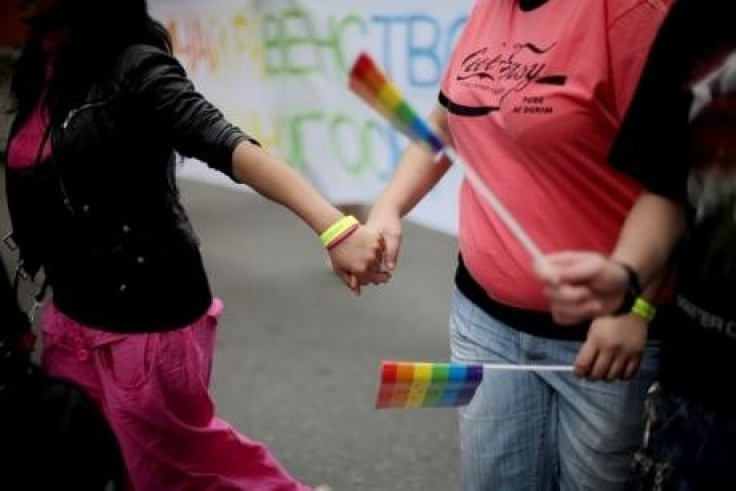No Justice for Gays in Bulgaria Preyed Upon by Violent Homophobes - Amnesty
Human rights charity blames 'widespread discrimination' against gay, lesbian and transgender people.

Amnesty International has criticised Bulgarian authorities for their failure to find justice for victims of gay hate crimes.
The human rights charity blames "widespread discriminatory attitudes" in the country, in which dozens of gay and lesbian people have been violently attacked.
In a report entitled Changing Laws Changing Minds, Amnesty claimed attacks on the lesbian, gay, bisexual and transgender (LGBT) community have "not been properly investigated and have gone unpunished".
"Too often, incidents were simply not reported because survivors of such attacks did not think they would be taken seriously," the charity said.
"The Bulgarian authorities are not only failing in their duty to unmask the homophobic or transphobic motive on which these crimes are perpetrated, but they are failing to bring the perpetrators to justice," said Emily Gray, Amnesty's sexual orientation and gender identity researcher Emily Gray.
The charity called for Bulgarian authorities to put legislation in place on the basis of sexual orientation and gender identity.
"Amnesty documented delays in the investigation and prosecution of two such crimes, and found that police and prosecutors often treated survivors with indifference," the report added.
"In many cases, these delays were compounded by a lack of understanding of how to deal with hate crimes and deep-seated prejudices against LGBT people."
'They trampled all over his chest'
Amnesty highlighted the case of 25-year-old Mihail Stoyanov, who disappeared from his house in Sofia on 30 September, 2008.
His mother, Hristina Stoyanova, left town soon afterwards, returning five days later to find that he still had not returned home. After checking the hospitals and local police station, she travelled to the central police station with Mihail's brother.
Upon their arrival at the station, the pair were separated and "bombarded" with questions about Mihail's friends and whether he took drugs. The police then told them that Mihail's body had been found in Borisova Garden in Sofia.
Hristina said she saw the forensic report, which described the horrific injuries that her son sustained, which ranged from extensive bruising to a broken windpipe.
Two suspects who were arrested for the attack allegedly belonged to a gang. Other gang members told the police they had been "cleansing the park" of gays. They also admitted they had attacked 10 other men.
The men were charged with "homicide with hooligan motive", subjected to two years of house arrest and released in April 2012. The case is still pending.
The 2011 Gay Pride parade through Sofia led to marchers being attacked by extremists, while firebombs were thrown at participants during previous events.
Action
Amnesty urged Bulgaria to "meet its international and European human rights obligations".
"Bulgaria must ensure that the new criminal code places sexual orientation and gender identity on an equal footing with other protected grounds in relation to hate crimes," the report added
The charity also called for practical changes in the procedures used by police and prosecutors and for improvements in education on sexuality.
Stoyanova said: "What is really needed is for children in schools to be taught about difference and that difference is okay - that it does not matter whether someone is gay or not gay."
© Copyright IBTimes 2024. All rights reserved.





